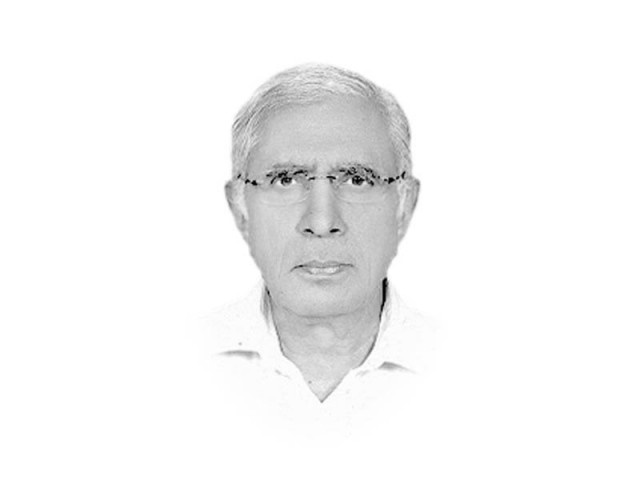Getting away with murder
'Benazir was brutally murdered by people who actively rejected the values that we at the United Nations stand for'

The writer served as executive editor of The Express Tribune from 2009 to 2014
This is what she said while speaking at the 72nd UN General Assembly session on September 20, 2017: “This year is the tenth anniversary of the death of the woman who introduced me to my husband and who is known well to many of us in this United Nations. Benazir Bhutto was brutally murdered by people who actively rejected the values that all of us here at the United Nations stand for. In a country that has suffered more than most at the hands of terrorists, murdered for standing up for democracy, murdered for espousing tolerance and murdered for being a woman. ”
Benazir’s friends and fans the world over and particularly her admirers in Pakistan feel highly indebted to May for her poignant remembrance of a dear leader brutally murdered in her political prime on December 27, 2007 by those that subscribe to a totally distorted version of Islam. Coming right on the heels of a curious judgment by an anti-terrorism court on the conclusion of the almost 10-year-long Benazir murder case, May’s tribute to Benazir sounded more like a cry of pained protest.
Meanwhile, the self-serving outburst of Gen Musharraf accusing Zardari of having hatched the conspiracy to get his spouse killed makes one feel that the man is protesting ‘too much’. Still, one cannot deny his ‘analysis’ seems grounded in logical circumstantial evidence.
However, Heraldo Munoz, the man who headed the UN Commission set up to inquire into the facts and circumstances of the assassination, asserts in his book Getting Away With Murder that Bhutto had emerged as a threat for General Musharraf as she returned to Pakistan to challenge his hold on power, making accusations about election rigging and campaigning in defiance of martial law…. There is evidence that Musharraf was increasingly angry at Benazir for criticising his regime so severely after having engaged in negotiations to secure a deal with him…Some in Musharraf’s regime may have felt that Benazir not only reneged on her promises but also would cause trouble, threaten their hold on power, and even affect the ‘national interests’. But this does not constitute proof of culpability.”
However, in the chapter ‘Whodunit?’ the author maintains that the political fingerprints on this case “brings to mind the quote ‘Will no one rid me of this troublesome priest?’ which King Henry II supposedly shouted in frustration at the conduct of the Archbishop of Canterbury Thomas Becket, who was subsequently killed by four knights who overheard their king and understood that he wanted Becket dead. In Benazir’s case, there was more than a single power figure who wished to be rid of that ‘troublesome’ woman… al Qaeda gave the order; Pakistani Taliban executed it, possibly backed or at least encouraged by elements of the establishment; the Musharraf government facilitated it by not providing her with adequate security; local senior policemen attempted a cover up; Benazir’s lead security team failed to properly safeguard her; and most Pakistani political actors would rather turn the page than continue investigating who was behind her assassination.”
Discussing the reaction to his commission’s report, Munoz writes, “one of the government’s first reactions came from Farhatullah Babar, President Zardari’s spokesperson who stated the PPP welcomed the report and announced that persons including ex-president Musharraf, named ‘for negligence or complicity or conspiracy’ would be investigated and cases also brought against them in the light of legal opinion.”
However, a few months later, “Dawn newspaper revealed the government’s objections to the report had been driven by the army, which prepared a reply presented to the prime minister and channeled through the foreign minister …Another news story indicated Islamabad was disgruntled at the finger pointing at the security services and role of leaders like Rehman Malik and Babar Awan.”
Published in The Express Tribune, September 30th, 2017.
Like Opinion & Editorial on Facebook, follow @ETOpEd on Twitter to receive all updates on all our daily pieces.















COMMENTS
Comments are moderated and generally will be posted if they are on-topic and not abusive.
For more information, please see our Comments FAQ